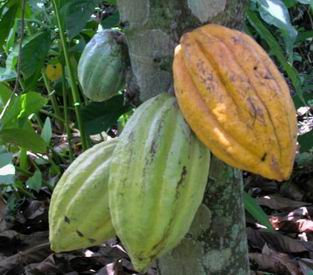 I hear people badmouth the United Nations…a lot. “What the hell is the point of a United Nations? They don’t actually do anything.” In the back of my mind, I always sort of disagreed, but wasn’t really sure because I actually didn’t have any tangible examples to back up my position. The World Food Program maybe? The UN High Council on Refugees? I have always felt that an open and transparent forum to discuss global issues between countries, even if the best resolution they have to offer is usually non-binding, isn’t a bad thing. And, as a matter of principle, I disagree with with former US ambassador to the UN, John Bolton, on every single issue, from foreign policy to favorite season of the Wire. He famously said in 1994 – a full decade before taking up the post of UN ambassador – this about the institution:
I hear people badmouth the United Nations…a lot. “What the hell is the point of a United Nations? They don’t actually do anything.” In the back of my mind, I always sort of disagreed, but wasn’t really sure because I actually didn’t have any tangible examples to back up my position. The World Food Program maybe? The UN High Council on Refugees? I have always felt that an open and transparent forum to discuss global issues between countries, even if the best resolution they have to offer is usually non-binding, isn’t a bad thing. And, as a matter of principle, I disagree with with former US ambassador to the UN, John Bolton, on every single issue, from foreign policy to favorite season of the Wire. He famously said in 1994 – a full decade before taking up the post of UN ambassador – this about the institution:
There is no such thing as the United Nations. There is only the international community, which can only be led by the only remaining superpower, which is the United States.”[60] He also stated that “The Secretariat Building in New York has 38 stories. If you lost ten stories today, it wouldn’t make a bit of difference.”[
Such an asshole.
But this week can be chalked up as a win for the institution, since Cote D’Ivoire’s recalcitrant, thuggish big man former president, Laurent Gbagbo was sheepishly captured in his basement and is now going to be tried in the International Criminal Court. Continue reading


 The big news in West Africa (and the rest of the world) is the election crisis in Cote D’Ivoire, the next-door neighbor of Ghana. I have talked to a lot of people about what’s happening and have tried to learn as much as I can about the issue. Basically, Cote D’Ivoire recently held a presidential election. The incumbent, Laurent Gbagbo, is a former history professor who took became president in 2000 in a contested election. Despite losing the most recent election to Alassaine Ouattara, a technocrat and economist from the predominantly Muslim north, Gbagbo is refusing to step down. Both men have been sworn in as president, though Ouattara is holding court in a hotel surrounded by 700 UN peacekeepers. Meanwhile, the entire world has condemned Gbagbo and called for him to step down. Gbagbo, the consummate “
The big news in West Africa (and the rest of the world) is the election crisis in Cote D’Ivoire, the next-door neighbor of Ghana. I have talked to a lot of people about what’s happening and have tried to learn as much as I can about the issue. Basically, Cote D’Ivoire recently held a presidential election. The incumbent, Laurent Gbagbo, is a former history professor who took became president in 2000 in a contested election. Despite losing the most recent election to Alassaine Ouattara, a technocrat and economist from the predominantly Muslim north, Gbagbo is refusing to step down. Both men have been sworn in as president, though Ouattara is holding court in a hotel surrounded by 700 UN peacekeepers. Meanwhile, the entire world has condemned Gbagbo and called for him to step down. Gbagbo, the consummate “
 The big news in this part of the world (West Africa) is the recent democratic election in Cote D’Ivoire, which saw the anointing of not one but two presidents. The incumbent president, who has led the country for 10 years and is constitutionally barred from seeking a third term in office, is refusing to step down after a decisive 54-46 loss to Alassane Ouattara, an economist and technocrat who also happens to be both a Muslim and a leader of the rebel groups in the north. The international community has unanimously rallied behind Ouattara and called for Gbagbo to step aside. The World Bank has suspended aid to the country, and Ouattara has called for the Central Bank to stop releasing money as a way to “starve the beast,” and turn hungry soldiers against the incumbent president. Unfortunately, with 173 people killed so far in the post-election violence, analysts are
The big news in this part of the world (West Africa) is the recent democratic election in Cote D’Ivoire, which saw the anointing of not one but two presidents. The incumbent president, who has led the country for 10 years and is constitutionally barred from seeking a third term in office, is refusing to step down after a decisive 54-46 loss to Alassane Ouattara, an economist and technocrat who also happens to be both a Muslim and a leader of the rebel groups in the north. The international community has unanimously rallied behind Ouattara and called for Gbagbo to step aside. The World Bank has suspended aid to the country, and Ouattara has called for the Central Bank to stop releasing money as a way to “starve the beast,” and turn hungry soldiers against the incumbent president. Unfortunately, with 173 people killed so far in the post-election violence, analysts are